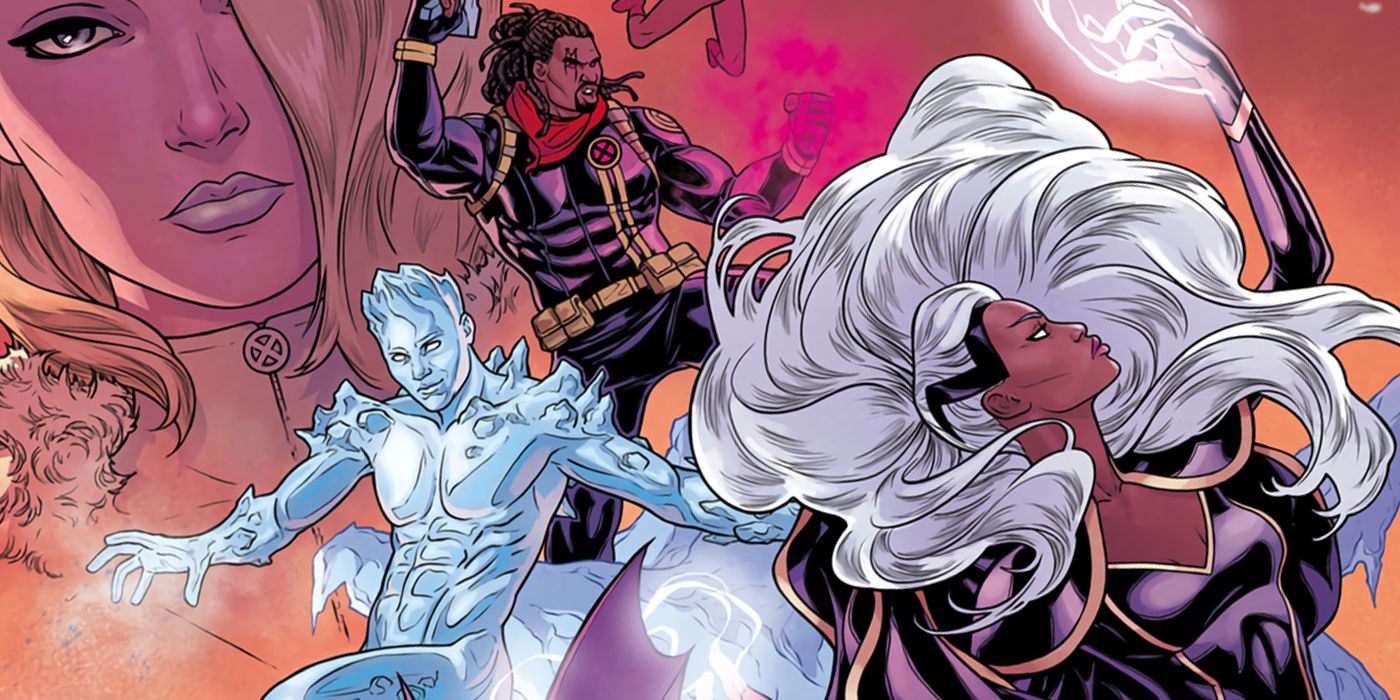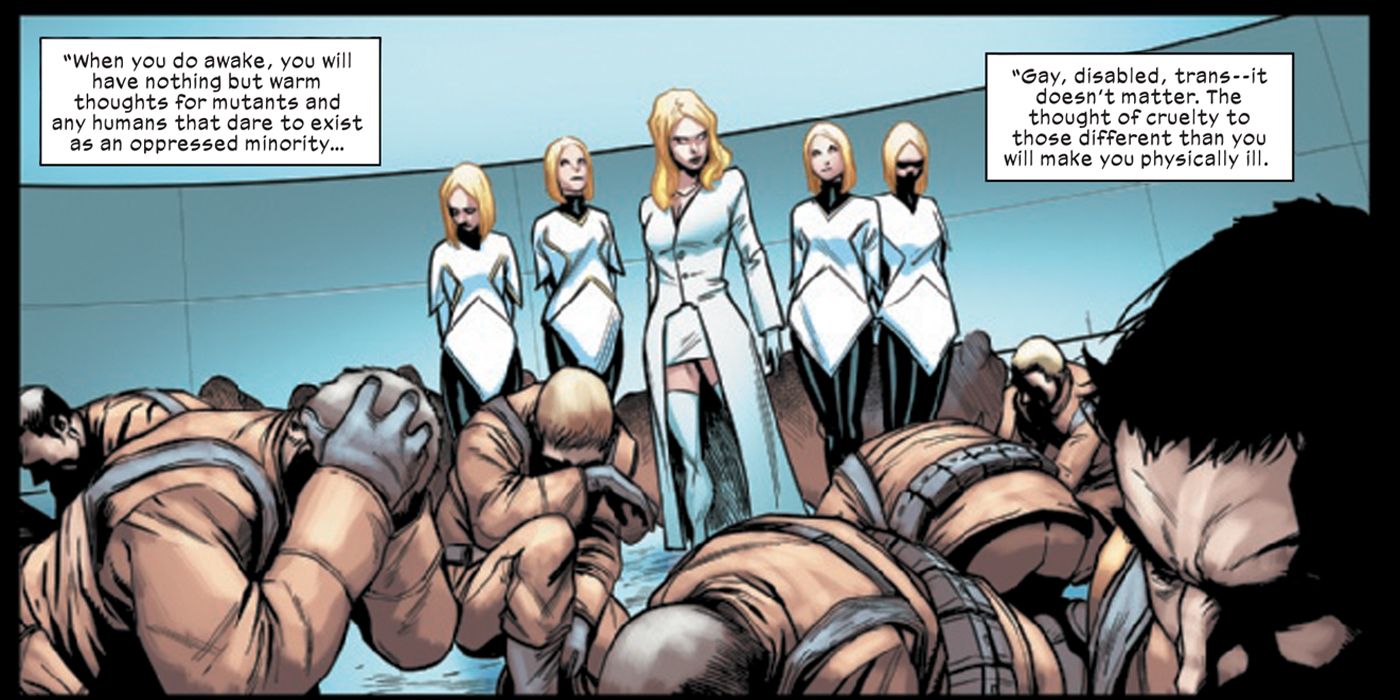WARNING: The following contains spoilers for Marauders #10, by Gerry Duggan, Stefano Caselli, Edgar Delgado, VC's Cory Petit and Tom Muller, available now.
Subtlety has never been the White Queen's strong suite, and Emma Frost's latest encounter with several enemies left them changed on a basic, psychological level. Marauders #10 offers up this very situation and sees Frost instantly embrace a tactic that few other X-Men would've considered.
Using her powers, Emma Frost literally wiped the intolerance from the minds of several mutant-hating foes. The White Queen encountered them when she was on an X-Men team that was trying to retrieve some dangerous weapons designed by Forge from the crew of a Russian ship. The scene in question was a remarkably short one, quickly glossed over and not mentioned by the likes of Forge, Bishop, Pyro or the others who helped execute the plan, but the implications are vast and disturbing.
Rather than killing or imprisoning the defeated soldiers, Frost used her psychic powers to change the nature of how they think. She told them that, from now on, they would be unable to think negatively about oppressed people. She specifically lists gay, disabled and trans people, and the very idea of thinking negatively about any of them will make the Russians physically ill.
By essentially rewriting their minds to force tolerance upon them, Frost crosses a perilous moral threshold, but she does so for laudable reasons.
The concepts of tolerance have long been relevant to the X-Men universe, and the parallels between mutants and traditionally disenfranchised communities have been present since the team's creation. While the X-Men have been focused on securing the future of mutantkind for the last few months, this scene reinforces that the idea of fighting intolerance is still a core tenant of the franchise.
While the X-Men have changed plenty of minds with their actions, deeds and words, radically altering the minds of their foes is a moral event horizon that most X-Men have never crossed. However, Emma Frost has never exactly been a paradigm of goodness. Although she's mostly outgrown the villain she originally was when she debuted, she hasn't always fouth the X-Men's worthwhile fight by anyone's rules other than her own.
As numerous discussions about the ethics of telepathy have proven, there's a fundamental wrongness to altering a person's nature against their will. This is like a shortcut to that same form of reprogramming present in films like A Clockwork Orange, where society's authority chooses what is right and makes others bend towards it whether they like it or not. It speaks to the nature of free will and what it even means to have a personality and agency.
In this situation, it's tempting to dismiss Frost's actions as justifiable. The men were likely killers, and their anti-mutant mission would have ended in suffering and death for mutants and others. While they clearly needed to be stopped, Emma's actions bring up the complex moral quandary of whether or not it's ever acceptable to physically reprogram them in the process, potentially making them different people.
Because these soldiers as clear cut villains and Frost's goals are so laudable, it's relatively easy to justify her actions. However, she also deprives these soldiers of the chance to come around to a more tolerant viewpoint from conventional means. Within the Marvel Universe, plenty of characters who walked the wrong path came to realize the error of their ways on their own accord, including Emma Frost, who went from being a major X-Men villain to one of the team's leaders.
For most of her existence, Emma Frost has thrived in the moral grey area between being not-quite-a-hero and not-quite-a-villain. After Frost was created by Chris Claremont and John Byrne in 1980's Uncanny X-Men #129, she spent those early years as a formidable foe of the X-Men in the Hellfire Club. It wasn't until the death of the Hellions, the first team of young mutants she trained, that she really turned into more of a hero, and that process continued through her tenure mentoring Generation X throughout the '90s and her tenure on the main X-Men teams in the '00s. Considering that past, Emma's decision to condemn others for their villainous actions with no chance of redemption is especially questionable.
As the old adage goes, no one thinks that they're the villain of their own story, and that holds especially true for Emma Frost, who has regularly embraced morally questionable tactics in the pursuit of more ultimately noble goals.
While there's still a very real question about whether these kinds of ends justify these kinds of means, they clearly do for Emma Frost, who has rarely hesitated to put her thoughts into actions, even if they cross a line.



